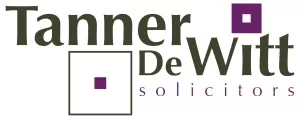X stole the money of Y, deposited the crime proceeds into Bank A and further transferred it to other banks.
Y is preparing to sue X. However, Y has no idea where his money went!
Does Bank A have the obligation to disclose what it knows to victim Y and to assist him?
In general, only parties to an existing litigation have the duty to disclose documents relevant to the litigation. However, this is not always the case. In our example above, Bank A may be required by law to disclose information to assist victim Y in locating his stolen money although Bank A did not know about the theft and was completely innocent.
This is often referred to a "Norwich Pharmacal" order. The rationale behind it is that the law imposes a duty upon a person who, through no fault of his own, gets mixed up in the wrongdoings of others to assist the person who has been wronged by giving him full information and disclosing the identity of the wrongdoers. Accordingly, the identities of potential defendants may be made the subject of disclosure by the Court.
Applying this to our example of X and Y above, the Norwich Pharmacal order is useful not only in locating the whereabouts of property, but also in identifying wrongful parties or establishing the amount or extent of theft.
This well established principle originated from Norwich Pharmacal Co. v Customs and Excise Commissioners [1974] AC 133, in which the owner of a patent knew that infringing goods were entering the UK, but could not ascertain their identity. The Commissioners, in the course of performing their duties had information that would identify the imports. Also, they had unknowingly played a part in facilitating importation of the infringing goods. The House of Lords found that where a third party had become involved in unlawful conduct, they were under a duty to assist the person suffering damage by giving them full information and disclosing the identity of wrongdoers.
The duty is not confined to identifying wrongdoers in the tortious acts, but includes the duty to provide "full information" to ascertain the existence of a cause of action or the elements thereof or to complete an investigation into such matters.1
The Norwich Pharmacal relief has now been commonly used to identify the proper defendant to an action or to obtain information to plead a claim. Such relief can also be granted in aid of proceedings taken or contemplated to be taken outside Hong Kong.
Common applications
One of the most common applications of the Norwich Pharmacal relief is against banks or others to whom stolen or misappropriated moneys or proceeds have paid. The Norwich Pharmacal relief enables those plaintiffs who have been wronged to trace their monies. This is also known as the Bankers Trust order after the case Bankers Trust Co v Shapira [1980] 1WLR1274 CA.
A Norwich Pharmacal Order can also be made against internet service provider for disclosure of the names and addresses of the users of IP addresses.
The requirements for obtaining the Norwich Pharmacal order
A Norwich Pharmacal order is an equitable remedy and the Court has discretion as to whether it should be granted. A Norwich Pharmacal order will only be granted where "necessary" in the interests of justice. The Court will only exercise its discretion if:
- There are cogent and compelling evidence to demonstrate serious wrongful activities have taken place;
- The order will or will very likely reap substantial and worthwhile benefits for the plaintiff;
- The discovery sought must not be unduly wide.
The applicant has an onerous duty to give full and frank disclosure of all material facts, especially if the application is made ex-parte without notice to the respondent. The applicant will be required to give certain undertakings to the Court, including an undertaking in damages.
Ancillary orders
The Norwich Pharmacal relief allows the plaintiff to obtain pre-action evidence against the wrongdoer. If the wrongdoer is forewarned of the plaintiff's application for pre-action discovery and its intention to bring proceedings against him afterwards, steps may be taken by the wrongdoer to frustrate any claim or investigation that may be made against him. He may also dissipate his assets beyond the plaintiff's reach.
Therefore, the application for a Norwich Pharmacal order should also include a "gagging order" to refrain the respondent, for a specified period of time, from informing anyone (including the wrongdoer) about the application or about the fact that information is being provided to the applicant.
Similarly, an "anonymity order" that keeps the parties name in secret can help to ensure that the wrongdoer will not be forewarned of the application.
TDW's experience
TDW has experience in obtaining Norwich Pharmacal orders, gagging orders and anonymity orders against major banks in Hong Kong.
Information successfully obtained by our clients includes the identity and address of the wrongdoer, bank statements, account opening documents and instructions to the banks.
If you would like to know more about the Norwich Pharmacal application and what other steps you can do to preserve the money or proceeds identified, please contact us.
Footnote
1.Yew Seng Computer (HK) Ltd v Computerland Corporation [1956] HKLR 283 (at 286D-E); P v T Ltd [1997] 1 WLR 1309 (at 1318D-1319B).
The content of this article is intended to provide a general guide to the subject matter. Specialist advice should be sought about your specific circumstances.

